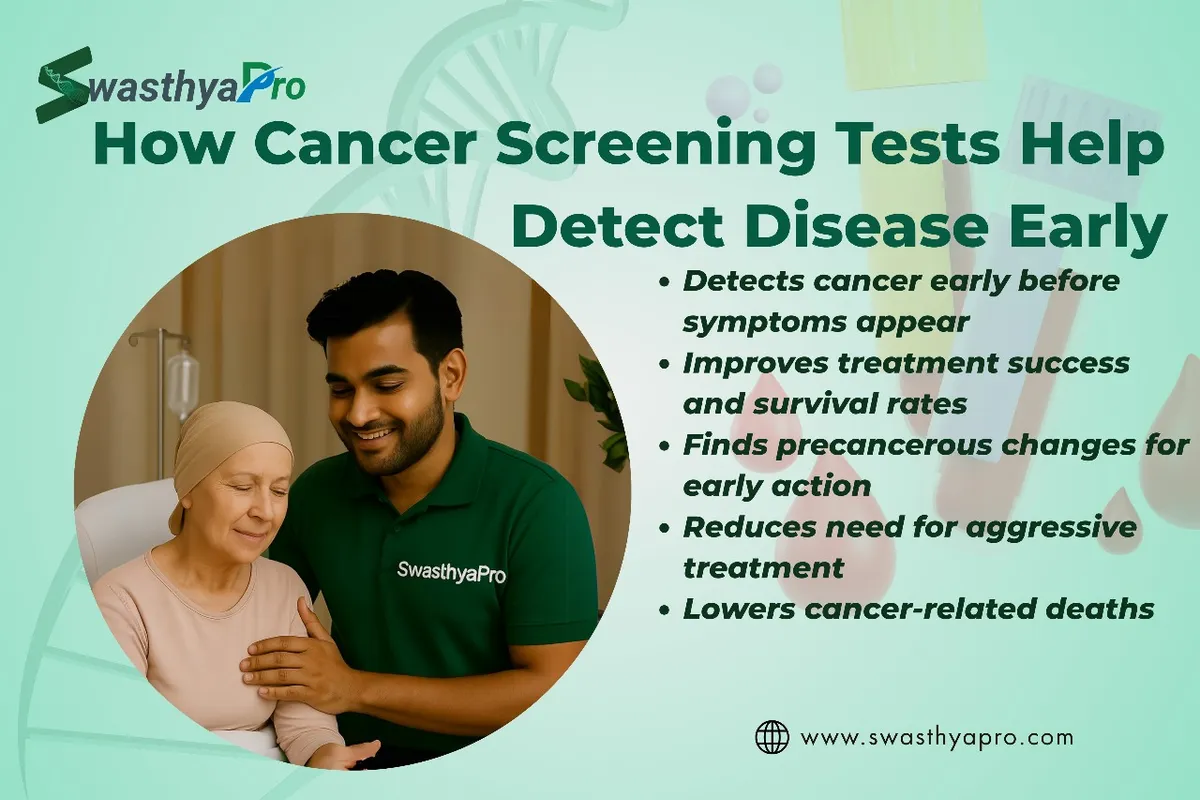Cancer screening test after 40: the most important tests you shouldn’t skip

Turning 40 is a milestone — and a wake-up call. You may feel healthy, active, and in control, but inside your body, small changes might already be happening. This is exactly why a cancer screening test becomes more important than ever after age 40.
Cancers are easier to treat — and often curable — when found early. A cancer screening test can detect risks before you notice any symptoms. Think of it as a warning system for your health, and a gift to your future self.
Let’s look at the cancer screening tests you should not skip once you’ve crossed the age of 40.
1. Breast cancer screening (for women)
Women over 40 are advised to begin regular mammograms. This cancer screening test uses low-dose X-rays to detect lumps or changes in breast tissue that could lead to cancer.
Most breast cancers caught early through a cancer screening test like this are highly treatable. It’s a quick procedure — and one of the most important steps you can take for your health.
2. Cervical cancer screening (for women)
Along with mammograms, women should continue with Pap smears and HPV testing. This cancer screening test looks for abnormal cells in the cervix that can become cancer if left untreated.
If you’ve never had a Pap test or it’s been years since your last one, age 40+ is a good time to get back on track. Cervical cancer grows slowly — and early testing can save you from a later shock.
3. Prostate cancer screening (for men)
For men, especially over 45, the PSA blood test is a crucial cancer screening test. It checks for prostate-specific antigen levels in your blood — higher levels can be an early sign of prostate cancer.
The test is simple and takes only minutes. If there’s a family history of prostate issues, your doctor might suggest screening even earlier.
4. Colon cancer screening (for everyone)
Colon cancer is one of the leading cancers in men and women. But it can be prevented — yes, prevented — with timely screening. A colonoscopy is the most common cancer screening test used to spot and remove precancerous polyps.
If you're 45 or older, or if you have digestive issues or family history, you should schedule this cancer screening test. There are also non-invasive options like stool-based tests, which are easy to do from home.
5. Lung cancer screening (for smokers or former smokers)
If you’ve smoked for many years, you're at a higher risk for lung cancer. A cancer screening test in the form of a low-dose CT scan is recommended between ages 50–80 for those with a heavy smoking history.
The scan is painless, fast, and can detect cancer early — before it spreads to other parts of the body. Even if you’ve quit, it’s smart to talk to your doctor about whether this cancer screening test is right for you.
Why after 40 matters so much
At 40, your body’s repair systems slow down. Risks that were once small can now grow faster if unnoticed. A cancer screening test gives you early insight — it tells you what’s going right, and where you need to pay attention.
These tests don’t just add years to your life — they add quality to those years. Early treatment often means no major surgery, no chemotherapy, and no extreme stress.
Final message
Your 40s are a time to enjoy life — not to fear your health. A cancer screening test doesn’t mean something is wrong. It means you care enough to stay ahead.
So, don’t wait for symptoms. Don’t wait for fear. Book your cancer screening test, follow your doctor’s advice, and make it a yearly routine.
Because after 40, health is not just about surviving. It’s about living fully — and screening is how you start.